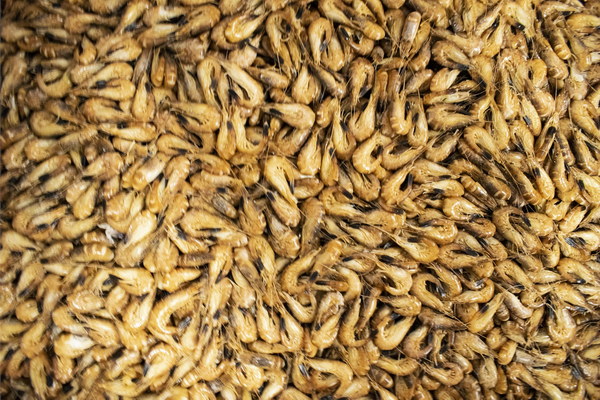Decoding the Qing Fei Soup Medical Case An Insight into Traditional Chinese Medicine's Approach to Lung Health
In the realm of traditional Chinese medicine (TCM), the Qing Fei Soup stands as a testament to the profound understanding of the human body and its intricate balance of yin and yang. This article aims to delve into the Qing Fei Soup medical case, offering an in-depth analysis of its ingredients, therapeutic principles, and the conditions it effectively treats.
The Qing Fei Soup, also known as the Clear Lung Decoction, is primarily used to treat various respiratory disorders such as common cold, bronchitis, and pneumonia. It is designed to expel external pathogens, clear heat, and nourish the lung yin, thereby restoring the body's balance and promoting healing.
The key ingredients of the Qing Fei Soup include:
1. Hua Shi (Gypsum Fibrosum): This mineral is known for its cooling properties, which help alleviate heat and inflammation in the lungs.
2. Chuan Bei Mu (Fritillaria Thunbergii): This herb is used to relieve cough, phlegm, and respiratory discomfort.
3. Zhi Bei Mu (Fritillaria Cirrhosa D. Don): Similar to Chuan Bei Mu, Zhi Bei Mu helps clear heat and phlegm, making it an excellent addition to the formula.
4. Xing Ren (Apium Graveolens): This herb aids in resolving cough and promoting the flow of qi in the chest and lungs.
5. Jing Jie (Schizonepeta Tenuifolia): Known for its anti-inflammatory properties, Jing Jie helps relieve congestion and reduce fever.
6. Zi Wan (Isatis Indica): This herb is effective in clearing heat and detoxifying the body, making it an essential component in the Qing Fei Soup.
The therapeutic principles of the Qing Fei Soup are based on the concept of expelling the external pathogens and nourishing the lung yin. When a person is attacked by external pathogens, such as wind, cold, or heat, the body's defense mechanism is compromised, leading to various respiratory disorders. The Qing Fei Soup works by expelling these pathogens, thus restoring the body's balance and promoting healing.

The formula's cooling properties help alleviate heat and inflammation in the lungs, while the nourishing ingredients, such as Zhi Bei Mu and Zi Wan, help replenish the lung yin, which is crucial for maintaining respiratory health. Additionally, the Qing Fei Soup's ingredients work synergistically to resolve cough, phlegm, and respiratory discomfort, providing relief to patients suffering from various respiratory disorders.
A case study illustrating the efficacy of the Qing Fei Soup involves a 45-year-old male patient diagnosed with chronic bronchitis. The patient experienced persistent cough, sputum production, and chest tightness for several months. Traditional medical treatment, including antibiotics and bronchodilators, had not provided significant relief.
After consulting with a TCM practitioner, the patient was prescribed the Qing Fei Soup. Within a week, the patient reported a significant decrease in cough and sputum production. After two weeks of continuous treatment, the patient's symptoms were almost completely resolved. The patient continued to take the Qing Fei Soup for an additional week to ensure complete recovery and prevent recurrence.
The success of this case study highlights the effectiveness of the Qing Fei Soup in treating chronic bronchitis and other respiratory disorders. By addressing the root cause of the illness and promoting the body's natural healing process, the Qing Fei Soup offers a safe and effective alternative to conventional medical treatments.
In conclusion, the Qing Fei Soup is a remarkable example of traditional Chinese medicine's ability to treat respiratory disorders by addressing the root cause of the illness. Its carefully selected ingredients and therapeutic principles make it a valuable addition to the TCM armamentarium for the treatment of respiratory disorders. By understanding the Qing Fei Soup medical case, we can gain insight into the profound wisdom of TCM and its potential to improve the health and well-being of individuals worldwide.









